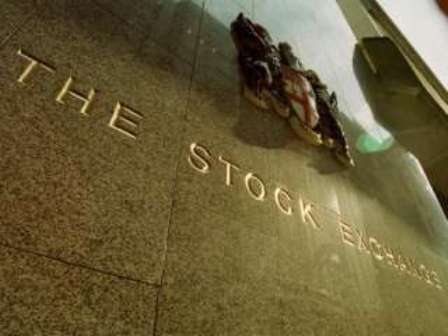Robots could kill off City traders
But will 'stock market robots' shout 'Buy! Buy! Sell! Sell!'

Computers have become part of all of our lives, and have made many long-standing professions obselete. Now it seems City traders could be next.
Researchers at IBM predict that by 2015 there will be 90 per cent fewer traders employed by investment banks as their jobs are taken over by computer systems.
Dubbed the 'algorithmic arms race' by IBM, top investment banks are currently trying to implement the speediest and most refined systems in a big to secure an advantage.
The systems increasingly used by investment banks and stock exchanges work to a set of algorithms that allow them to respond to changes in market conditions and make the most profitable deals.
The London Stock Exchange is already increasing the capability of its systems in order to cope with a future increase in algorithmic trading.
The perfect employeeSpeed and cost are the biggest advantages that the computerised systems have over the human traders - they work around the clock, and don't complain about not getting paid either.
An analyst has pointed out that the threat of being replaced by a machine may be smaller for higher level traders, who take strategic risk positions that computer systems are less able to determine.
Get daily insight, inspiration and deals in your inbox
Sign up for breaking news, reviews, opinion, top tech deals, and more.
And Chris Skinner, associate director of analysts Tower Group , added that trader-less exchanges won't be appearing any time soon.
Skinner said that the predictions made by IBM , are "possible but not probable".
"20 years ago, people were predicting paperless offices and cashless societies. They haven't happened and neither will trader-less stock exchanges."
But he acknowledges traders will need to become more sophisticated if they are to survive - and those unable to cope with new demands fall by the wayside. Anna Lagerkvist
Tech.co.uk was the former name of TechRadar.com. Its staff were at the forefront of the digital publishing revolution, and spearheaded the move to bring consumer technology journalism to its natural home – online. Many of the current TechRadar staff started life a Tech.co.uk staff writer, covering everything from the emerging smartphone market to the evolving market of personal computers. Think of it as the building blocks of the TechRadar you love today.